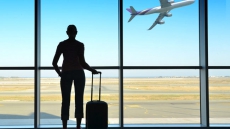As colleges figure out how to structure classes this fall, many students are questioning whether to enrol at all. The idea of taking a gap year might sound enticing, but returning students should think twice.
Many colleges have official gap year or deferred enrolment policies for incoming freshmen. But returning students who choose to take time off and re-enrol once the uncertainties of the COVID-19 pandemic have passed aren’t “gappers.” They’re “stopouts,” and they face risks that don’t come with a traditional gap year.
The president and founder of The Institute of Student Loan Advisors, Betsy Mayotte, explains that colleges have individual leave of absence and withdrawal policies for students who want to take time off. Students who don’t follow those rules might end up with unexpected debt and be blocked from accessing their academic transcripts.
“I see a lot of students that just stop going to school and don’t understand why they’re being charged,” says Mayotte.
Taking a break from college this fall could derail your overall educational and financial goals. Here’s why you should stay enrolled.
YOU MIGHT HAVE TO REAPPLY TO GET BACK IN
Unless the college makes concessions, students without an approved leave of absence are at the mercy of the readmission policy to determine if they can return. Even with an approved leave of absence, you can miss only 180 days in a 12-month period, according to the Department of Education’s Code of Federal Regulations.
“Students have to weigh their options and look at what’s going on with their university,” says Kenneth Stephens, director of the Department of Human Services for Florida’s Southeastern University. He notes that while his school has systems in place for students dealing with the COVID-19 crisis, others are still trying to figure it out.
Some colleges allow students to re-enrol after two years off with no hassle. But others, like the University of Miami or East Carolina University, require students to submit an application for readmission and pay a fee after missing only one semester of school.
Schools also don’t have to readmit students who take time off. For example, the University of Arizona’s Graduate College requires a new application, application fee and a minimum 3.0 GPA on all previous coursework at the university before granting readmission. And Drexel University in Philadelphia makes clear that students might have to take additional coursework to graduate if the curriculum changed during their stopout. They might even have to enrol in a different program altogether.
YOU MIGHT HAVE TO MAKE STUDENT LOAN PAYMENTS
If you have student loans, taking time off could trigger repayment to begin. Contact your student loan servicer or lender to find out their policy.
All federal student loans are in an administrative forbearance through Sept. 30, due to a provision in the federal government’s coronavirus relief package. So until then, you don’t have to worry about your loans gaining interest or going into repayment.
But if you plan on missing the school year, you will exhaust that window and payments will begin after your six-month grace period ends. While there is speculation that the forbearance could be extended, nothing has been announced.
Federal student loans only get one grace period, so if you use it now you won’t have it available after you graduate, says Mayotte.
The coronavirus relief package forbearance doesn’t apply to private student loans. If you decide to stopout due to COVID-19, your private loans might enter the grace period and then head into repayment. And not all private lenders allow academic deferments for students who return to school, so you could be on the hook for loan payments even when you return to full-time student status.
YOU MIGHT NOT FIND STABLE WORK
Students planning to work full time must contend with the highest unemployment rate since the Great Depression. The coronavirus remains a threat, and a second wave could cause more shutdowns, which might make finding and keeping a job even harder.
“I’ve had students who mentioned stopping-out, and I told them they should really think about that,” says Sharon Taylor, director of academic advising and professional enhancement at Virginia State University. “The first thing they say is they will work, and I ask them to look at how many people are out of work right now.”
Taylor advises students to continue school if they can afford it and says, “It’s better to wait out the pandemic in school than out of school.”
If you want to minimize coronavirus-related uncertainties with your school, there are options other than withdrawing completely.
— TAKE A HALF-TIME SCHEDULE: Students can take fewer classes and still maintain some of their financial aid benefits while making progress toward graduation. Not all students are comfortable with online learning. Taking fewer classes will give you more flexibility in case your school shuts down early to go online.
— TAKE ONLINE CLASSES AT A COMMUNITY COLLEGE: If you need to complete general education requirements, you may be able to do them online at a local community college. That way you can save money on tuition, avoid the unknowns with in-person classes and complete graduation requirements. Before taking community college classes, check with your school to make sure the classes will transfer and that you are in compliance with your school’s dual enrolment policies.
— TAKE AN OFFICIAL LEAVE OF ABSENCE: If you decide not to take classes this fall, work with your school to take an official leave of absence. Communicate with your college to let them know why you want to take time off and when you plan to return. Make sure you ask questions about financial aid implications and try to work out exceptions to get more favourable terms with your school and loan servicer. If you have private loans, contact your lender to discuss your leave of absence and ask questions about how it will affect your loan’s status.






